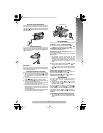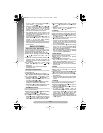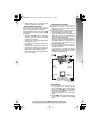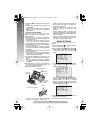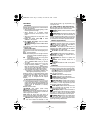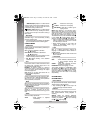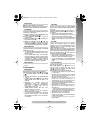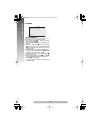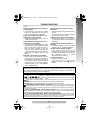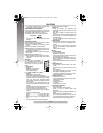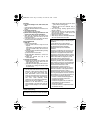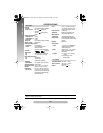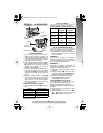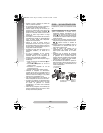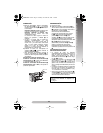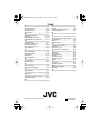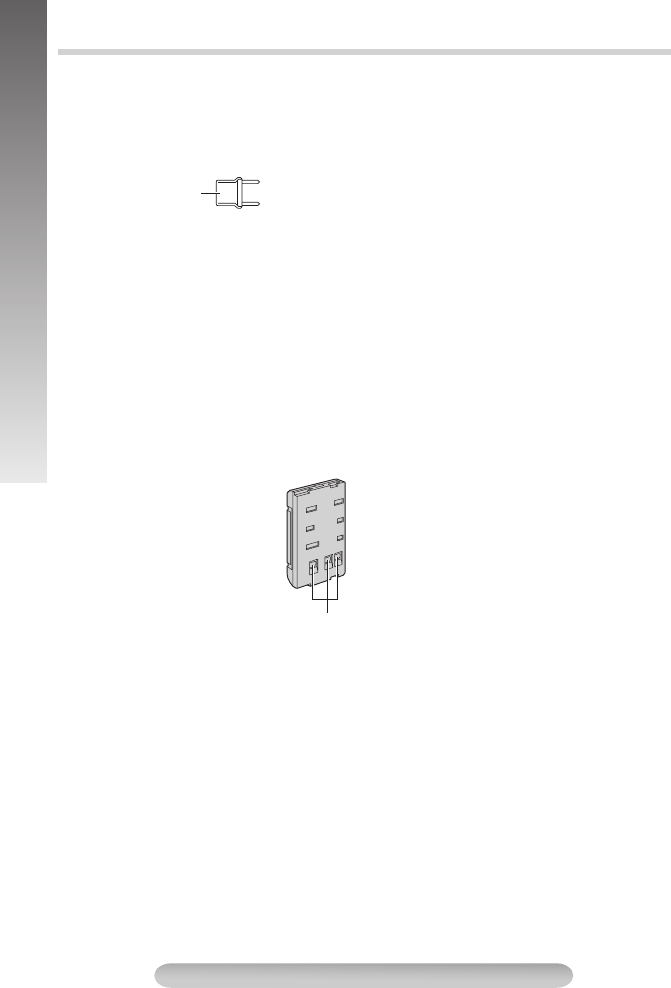
18
CAUTIONS
When using the AC Adapter in areas other than the USA
• The provided AC Adapter features automatic voltage
selection in the AC range from 110 V to 240 V.
USING HOUSEHOLD AC PLUG ADAPTER
In case of connecting the unit’s AC Adapter to an AC wall outlet
other than American National Standard C73 series type use an
AC plug adapter, called a "Siemens Plug", as shown.
For this AC plug adapter, consult your nearest JVC dealer.
• If there is dust or dirt on the AC Adapter, wipe it clean
before using.
General Battery Precautions
Please make note of the following rules for battery use. When
misused, the batteries can leak or explode.
1) Do not use any different size of batteries from those
specified.
2) Be sure to insert batteries in the correct direction.
3) Do not use Generic non-JVC batteries. Using generic non-
JVC batteries can cause serious damage to the camera’s
internal battery charging circuits.
4) Do not expose the batteries to excessive heat as they can
leak or explode.
5) Do not dispose of the batteries in a fire.
6) Remove the batteries from the unit if it is to be stored for an
extended period to avoid battery leakage which can cause
malfunctions.
Battery Packs
The battery packs are nickel-cadmium or
nickel metal-hydride batteries. Before using
the supplied battery pack or an optional
battery pack, be sure to read the following
cautions:
1) To avoid hazard…
… do not burn.
… do not short-circuit the terminals.
… do not modify or disassemble.
… use only specified chargers.
2) To prevent damage and prolong
service life…
… do not subject to unnecessary shock.
… avoid repeated charging without fully discharging.
… charge in an environment where temperatures are within
the tolerances shown in the chart below. This is a chemical
reaction type battery—cooler temperatures impede
chemical reaction, while warmer temperatures can prevent
complete charging.
… store in a cool, dry place. Extended exposure to high
temperatures will increase natural discharge and shorten
service life.
… fully charged and then fully discharged the battery every 6
months when storing it over a long period of time.
… remove from charger or powered unit when not in use.
• It is normal for the battery pack to be warm after charging,
or after use.
Temperature Range Specifications
Charging..................................10°C to 35°C (50°F to 95°F)
Operation ................................0°C to 40°C (32°F to 104°F)
Storage..................................–10°C to 30°C (14°F to 86°F)
• Recharging time is based on room temperature of 20°C
(68°F).
• The lower the temperature, the longer recharging takes.
Cassettes
To properly use and store your cassettes:
1) During use…
… beware that recording onto prerecorded tapes
automatically erases the previously recorded video and
audio signals.
… make sure the cassette is positioned properly when
inserting.
… do not load and unload the cassette repeatedly without
allowing the tape to run at all. This slackens the tape and
can result in damage.
… do not open the front tape cover. This exposes the tape to
fingerprints and dust.
2) Store cassettes…
… away from heaters, other heat sources or direct sunlight.
… where they won’t be subject to unnecessary shock or
vibration.
… where they won’t be exposed to strong magnetic fields
(such as those generated by motors, transformers or
magnets).
… vertically, in their original cases.
Main Unit
1) For safety, DO NOT…
… open the camcorder’s chassis.
… disassemble or modify the unit.
… short-circuit the terminals of the battery pack. Keep it away
from metallic objects when not in use.
… allow inflammables, water or metallic objects to enter the unit.
… remove the battery pack or disconnect the power supply
while the power is on.
… leave the battery pack attached when the camcorder is not
in use.
2) Avoid using the unit…
… in places subject to excessive humidity, dust, shock or
vibration.
… in places subject to soot or steam such as near a cooking
stove.
… near a television set.
… near appliances generating strong magnetic or electric
fields (speakers, broadcasting antennas, etc.).
… in places subject to extremely high (over 40°C or 104°F) or
extremely low (under 0°C or 32°F) temperatures.
3) DO NOT leave the unit . . .
… in places of over 50°C (122°F).
… in places where humidity is extremely low (below 35%) or
extremely high (above 80%).
… in direct sunlight.
… in a closed car in summer.
… near a heater.
… in dusty places such as a beach.
4) To protect the unit, DO NOT…
… allow it to become wet.
… drop the unit or strike it against hard objects.
… subject it to shock or excessive vibration during
transportation.
… keep the lens directed at extremely bright objects for long
periods.
… direct the eyepiece of the viewfinder at the sun.
… carry it by holding the viewfinder or the LCD monitor. Be
sure to hold the main unit with both hands or use the grip.
… swing it excessively when using the shoulder strap.
CAUTIONS
Plug adapter
Terminals
GR-SXM37-EN.fm Page 18 Monday, November 29, 2004 4:15 PM



